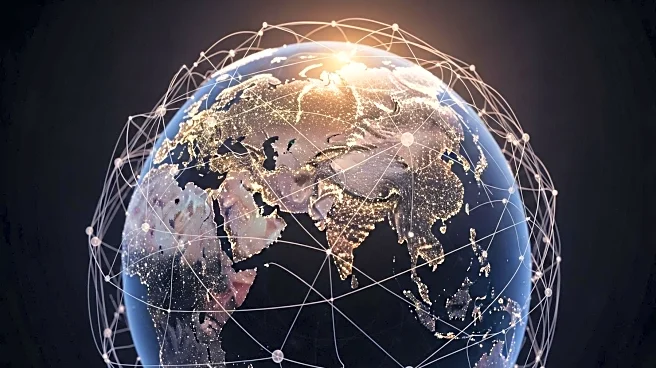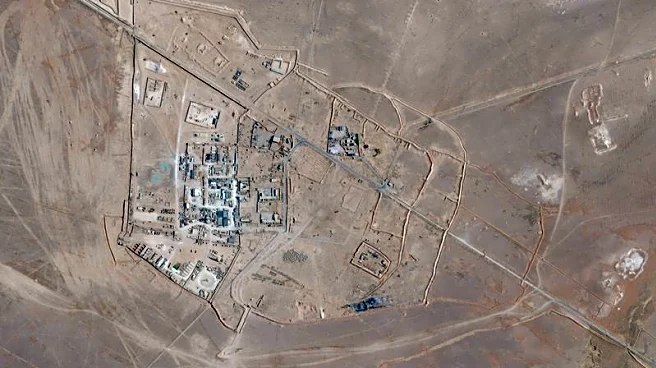What is the story about?
What's Happening?
President Trump has signed a proclamation imposing a $100,000 fee on new H-1B visa holders seeking entry into the United States. This measure specifically targets Indian IT outsourcing firms and does not apply to individuals already holding H-1B status within the U.S. or student visa holders transitioning to H-1B. The proclamation aims to protect American workers from wage suppression, citing evidence that entry-level salaries for H-1B holders can be significantly lower than those for domestic hires. However, the move is expected to affect the Indian IT sector, which heavily relies on H-1B visas for its workforce. The fee could lead to a shift towards local hiring in the U.S., increased use of L-1 visas, or expansion of delivery centers abroad.
Why It's Important?
The new fee on H-1B visas could have significant implications for both the U.S. and Indian economies. For the U.S., the restriction may not lead to increased domestic employment, as firms might opt to create jobs abroad, particularly in countries like India, China, and Canada. This could result in innovation spillovers moving outside the U.S., potentially eroding its leadership in STEM fields. For India, the fee could accelerate the shift towards local hiring and remote work, impacting mid-tier IT firms that still rely on H-1B visas. The move also highlights the changing dynamics in trade negotiations, where India may need to focus on goods, services, and digital trade rather than visa mobility.
What's Next?
India may need to reassess its trade negotiation strategies, moving away from emphasizing H-1B visa mobility and focusing on areas that align with its national interests. This could involve negotiating for tariff cuts, market access, and investment frameworks. The shift in focus could lead to more opportunities for remote work and offshore jobs in India, as well as a stronger emphasis on cross-border digitally delivered services. The ongoing trade talks between India and the U.S. will be crucial in determining the future of bilateral relations and economic cooperation.
Beyond the Headlines
The imposition of the H-1B visa fee reflects broader trends in global trade and immigration politics. As cross-border digitally delivered services become a dominant segment of international trade, countries like India may need to adapt their strategies to leverage these changes. The fee also underscores the fragility of visa concessions, which can be easily overturned by executive actions. This development could lead to a reevaluation of how countries negotiate trade agreements, focusing on sustainable and resilient economic partnerships.
















